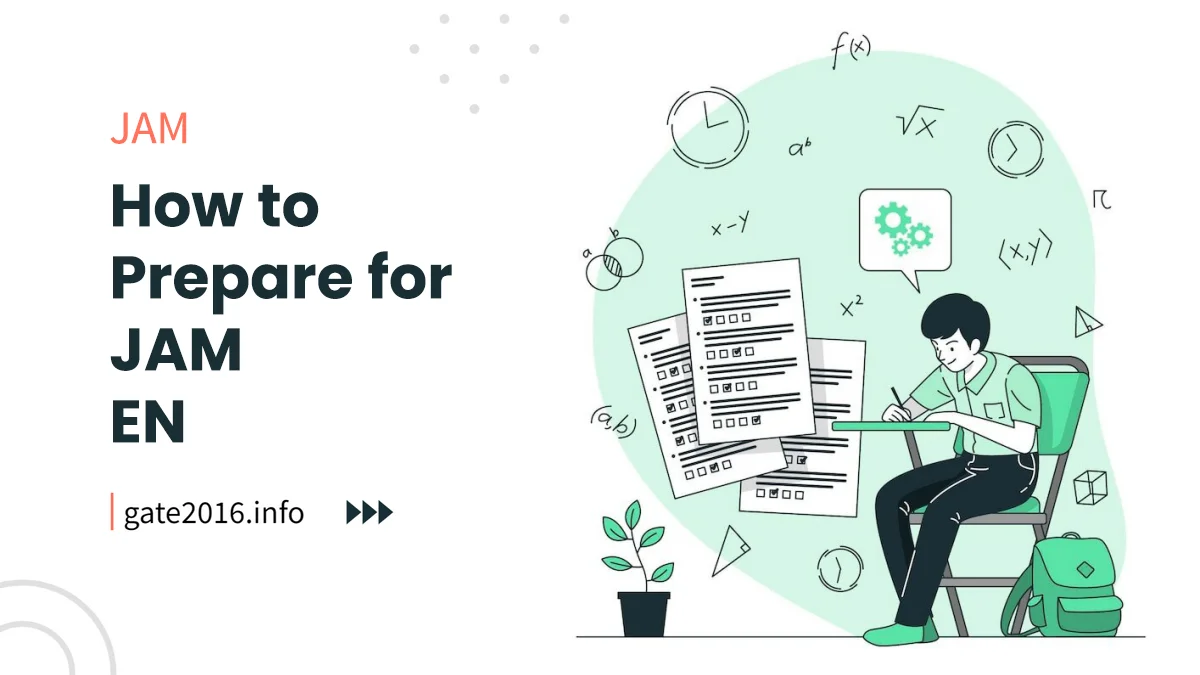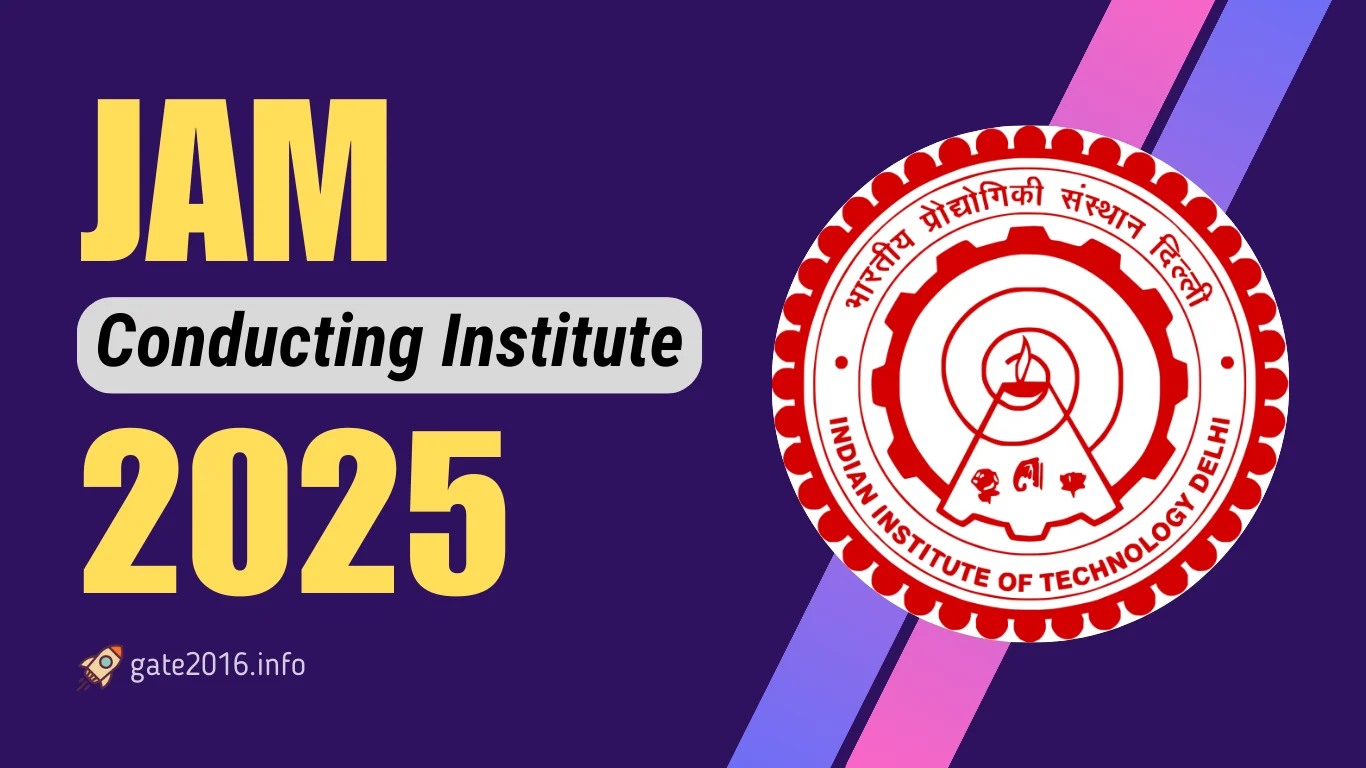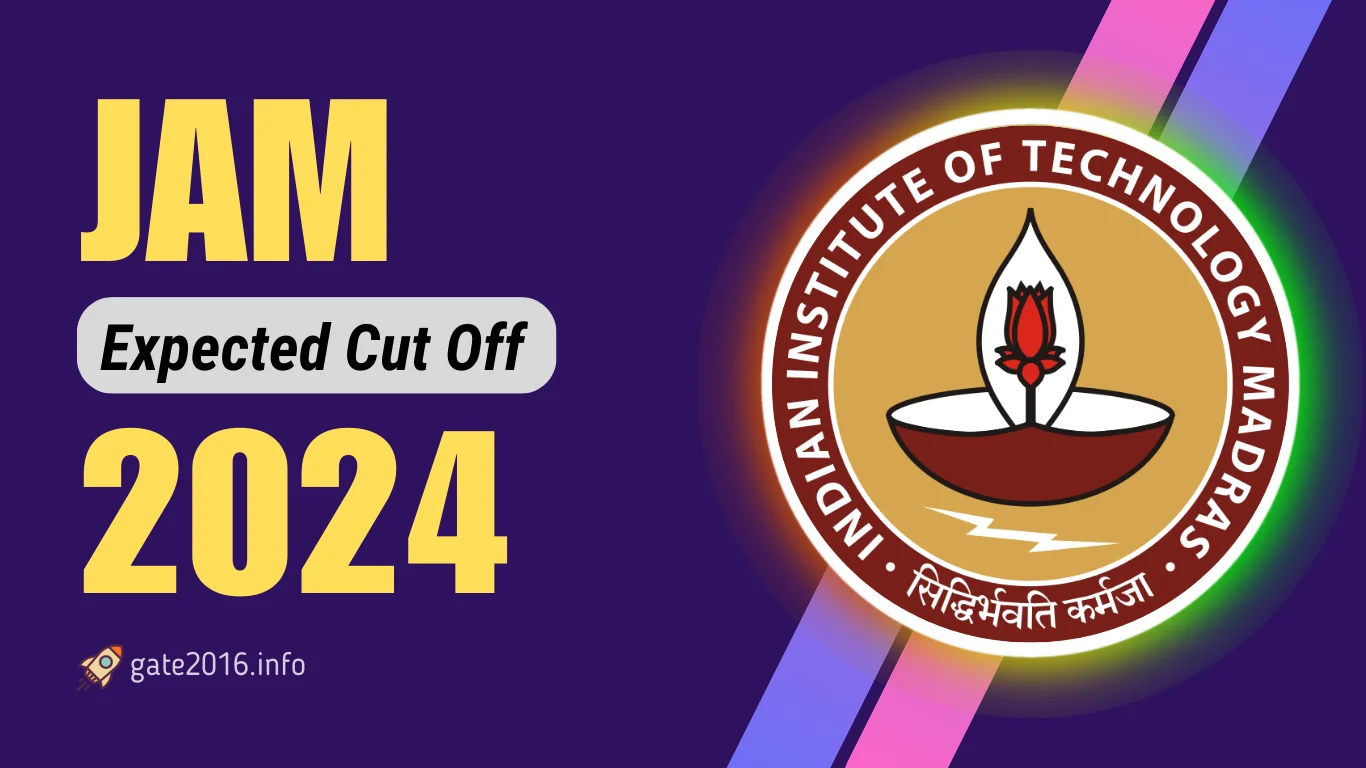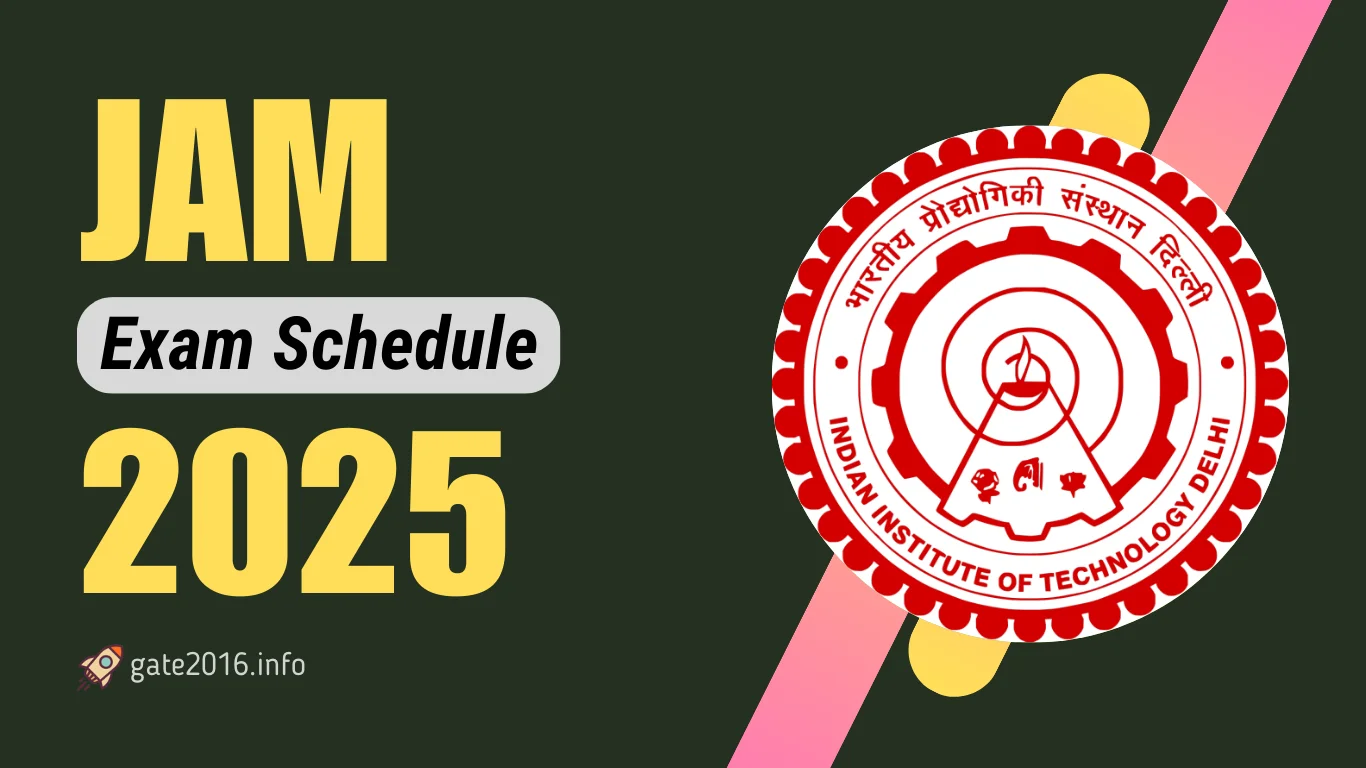Advertisements
Ratings

JAM 2024 EN Preparation – The JAM Economics exam serves as a gateway for students aspiring to pursue a Master’s degree in Economics.
Excelling in this exam requires a well-structured preparation strategy, deep understanding of economic concepts, and effective time management.
This comprehensive guide will provide you with a step-by-step approach to prepare for the JAM Economics exam and achieve outstanding results.
Contents
- 1. Understanding the Importance of JAM Economics
- 2. JAM Economics Syllabus Overview
- 3. Developing an Effective Study Plan
- 4. Choosing the Right Study Materials
- 5. Mastering Core Economics Concepts
- 6. Problem-Solving Practice
- 7. Reviewing Previous Years’ Question Papers
- 8. Taking Mock Tests
- 9. Effective Time Management Strategies
- 10. Implementing Revision Techniques
- 11. Staying Informed with Economic Trends
- 12. Managing Exam Stress
- 13. Final Weeks’ Preparation Strategy
- 14. Approaching Exam Day
- 15. Post-Exam Analysis and Next Steps
- Conclusion: Excelling in JAM Economics
- Additional Resources and References
- JAM Economics Guidance
- JAM Economics Preparation FAQs
- JAM Total Information & Guidance
1. Understanding the Importance of JAM Economics
The JAM Economics exam holds immense significance for individuals aiming to specialize in the field of economics.
It not only opens the doors to prestigious institutions but also lays the foundation for a successful career in economics research, policy analysis, and academia.
2. JAM Economics Syllabus Overview
The JAM Economics syllabus covers a diverse range of topics in microeconomics, macroeconomics, and quantitative methods.
Here’s a breakdown of the main subjects and key topics:
Table 1: JAM Economics Syllabus Breakdown
| Subject | Key Topics |
|---|---|
| Microeconomic Theory | Consumer and producer theory, Market structures, Welfare economics |
| Macroeconomic Theory | National income accounting, IS-LM model, Aggregate demand and supply |
| Mathematical Methods | Differentiation, Integration, Optimization |
| Probability and Statistics | Probability theory, Sampling methods, Estimation, Hypothesis testing |
3. Developing an Effective Study Plan
An organized study plan is crucial for efficient preparation. Here’s a step-by-step approach to creating a study plan:
- Self-Assessment: Identify your strengths and weaknesses in different topics.
- Study Schedule: Create a daily or weekly study schedule, allocating time for each subject.
- Consistent Practice: Dedicate time to solving practice problems and revising concepts.
- Mock Tests: Include regular mock tests to gauge your progress and improve time management.
Table 2: Sample Study Plan
| Week | Subjects/Topics | Time Allocation |
|---|---|---|
| 1-2 | Microeconomic Theory | 12 hours/week |
| 3-4 | Macroeconomic Theory | 10 hours/week |
| 5-6 | Mathematical Methods | 8 hours/week |
| 7-8 | Probability and Statistics | 10 hours/week |
4. Choosing the Right Study Materials
Selecting the appropriate study materials is vital for comprehensive learning:
Table 3: Recommended Study Resources
| Subject | Books | Online Resources |
|---|---|---|
| Microeconomic Theory | “Microeconomic Theory” by Andreu Mas-Colell | Khan Academy Microeconomics |
| Macroeconomic Theory | “Macroeconomics” by N. Gregory Mankiw | Coursera’s Macroeconomics Courses |
| Mathematical Methods | “Mathematical Economics” by Alpha C. Chiang | MIT OpenCourseWare Mathematics |
| Probability and Statistics | “Introduction to Probability” by Dimitri P. Bertsekas | NPTEL’s Probability and Statistics Course |
5. Mastering Core Economics Concepts
A strong foundation in core economics concepts is essential:
- Microeconomics: Understand consumer behavior, market structures, and welfare economics.
- Macroeconomics: Grasp national income accounting, IS-LM model, and aggregate demand and supply.
- Mathematical Methods: Familiarize yourself with differentiation, integration, and optimization.
- Probability and Statistics: Develop expertise in probability theory, sampling, and hypothesis testing.
6. Problem-Solving Practice
Regular practice of problem-solving is key to mastering economics:
- Variety of Problems: Solve problems of varying complexity to enhance problem-solving skills.
- Application of Theories: Apply economic theories to real-world scenarios for deeper understanding.
7. Reviewing Previous Years’ Question Papers
Solving past years’ question papers provides valuable insights:
Table 4: Benefits of Solving Previous Years’ Papers
| Benefit | Description |
|---|---|
| Identify Question Patterns | Recognize recurring question types |
| Time Management | Practice managing time during the exam |
| Focus on Key Topics | Understand distribution of questions |
| Self-Assessment | Evaluate your level of preparedness |
8. Taking Mock Tests
Mock tests offer an exam-like experience and help assess your readiness:
Table 5: Benefits of Taking Mock Tests
| Benefit | Description |
|---|---|
| Simulate Exam Conditions | Experience time constraints and exam pressure |
| Time Management | Enhance time allocation for each section |
| Performance Analysis | Identify strengths and weaknesses |
| Build Confidence | Boost self-assurance before the exam |
9. Effective Time Management Strategies
Managing time during the exam is crucial for optimal performance:
Table 6: Time Management Strategy
| Section | Recommended Time Allocation |
|---|---|
| Section A (MCQs) | 60 minutes |
| Section B (MSQs) | 30 minutes |
| Section C (NATs) | 30 minutes |
10. Implementing Revision Techniques
Regular revision is essential for retaining information:
- Structured Revision: Allocate time for revisiting key concepts.
- Summary Notes: Create concise notes for quick review before the exam.
11. Staying Informed with Economic Trends
Stay updated with the latest economic developments:
- Follow Economic Journals: Subscribe to reputable journals for current research.
- Stay Informed: Read newspapers, magazines, and online sources to understand real-world economic scenarios.
12. Managing Exam Stress
Efficient stress management enhances performance:
- Relaxation Techniques: Practice meditation, deep breathing, and relaxation exercises.
- Balanced Lifestyle: Incorporate physical activity, healthy eating, and breaks into your routine.
13. Final Weeks’ Preparation Strategy
Focus intensively on challenging topics in the final weeks:
- Intense Revision: Allocate more time to topics that need further understanding.
- Additional Mock Tests: Take extra mock tests to refine your preparation.
14. Approaching Exam Day
Stay calm and approach the exam day confidently:
- Read Instructions: Carefully read and comprehend question patterns and instructions.
- Time Management: Allocate time based on question weightage and complexity.
15. Post-Exam Analysis and Next Steps
Evaluate your performance and plan your next steps:
- Performance Evaluation: Identify areas for improvement and celebrate strengths.
- Future Plans: Consider advanced studies or career opportunities in economics based on your results.
Conclusion: Excelling in JAM Economics
By adhering to the comprehensive strategies outlined in this guide, aspiring economists can establish a solid preparation plan for the JAM Economics exam.
Success in this exam not only opens the doors to further education but also sets the stage for a fulfilling career in the realm of economics.
Additional Resources and References
Explore the recommended textbooks, online courses, and practice papers mentioned in this guide for additional study materials and references.
These resources will further enhance your understanding and preparation for the JAM Economics exam.
JAM Economics Guidance
- How to Prepare for JAM Economics: A Comprehensive Guide
- [PDF] IIT JAM Previous Year Solved Papers – EN – (2023-2021)
- JAM Syllabus for EN 2025: Economics
JAM Economics Preparation FAQs
What is JAM Economics (Economics)?
JAM Economics is an entrance examination conducted for admission to various postgraduate programs in Economics and related fields offered by Indian Institutes of Technology (IITs) and other prestigious institutions in India.
It assesses candidates' knowledge and understanding of economics concepts and their analytical and quantitative skills.
What are the important topics to focus on for JAM Economics preparation?
Key topics to focus on include microeconomics, macroeconomics, mathematical economics, econometrics, and statistical methods. The JAM Economics syllabus covers a wide range of economic theory and quantitative methods.
How should I prepare for the JAM Economics exam?
Effective preparation involves creating a study plan based on the JAM syllabus. Use standard textbooks, reference materials, and online resources for each subject.
Practice solving previous years' question papers and sample tests to become familiar with the exam pattern and improve your problem-solving skills. Focus on understanding economic concepts and quantitative techniques.
Are there any recommended books or resources for JAM Economics preparation?
Yes, some recommended books and resources include:
- 'Microeconomics' by Robert S. Pindyck and Daniel L. Rubinfeld
- 'Macroeconomics' by N. Gregory Mankiw
- 'Mathematical Methods for Economics' by Michael Klein
- 'Econometric Analysis' by William H. Greene
- Online courses and lecture videos from reputable institutions and platforms like NPTEL and Coursera.
What is the exam pattern for JAM Economics, and how should I approach it?
JAM Economics typically consists of multiple-choice questions, multiple-select questions, and numerical answer type questions.
Questions cover various aspects of economics theory, applications, and quantitative analysis.
Start by answering questions you are confident about and manage your time efficiently. For numerical answer type questions, ensure precision in your answers.
A strong understanding of economic concepts, mathematical methods, and econometrics is essential for success in the exam.
Recent Posts
- IIT Delhi | JAM 2025 | Official Website
- How to Prepare for JAM Chemistry: A Comprehensive Guide
- How to Prepare for JAM Biotechnology: A Comprehensive Guide
- How to Prepare for JAM Mathematics: A Comprehensive Guide
Related Tags
How to prepare for jam economics pdf 2025, How to prepare for jam economics in india 2025, iit jam economics 2025, iit jam economics cut off 2025, iit jam economics books 2025, iit jam economics syllabus 2025, iit jam economics colleges 2025, iit jam economics book pdf 2025</p>
| IIT JAM Guide Books |
JAM Total Information & Guidance
Click below given links to get further information.





